‘We were the only ones who cared about Swiss self-determination’
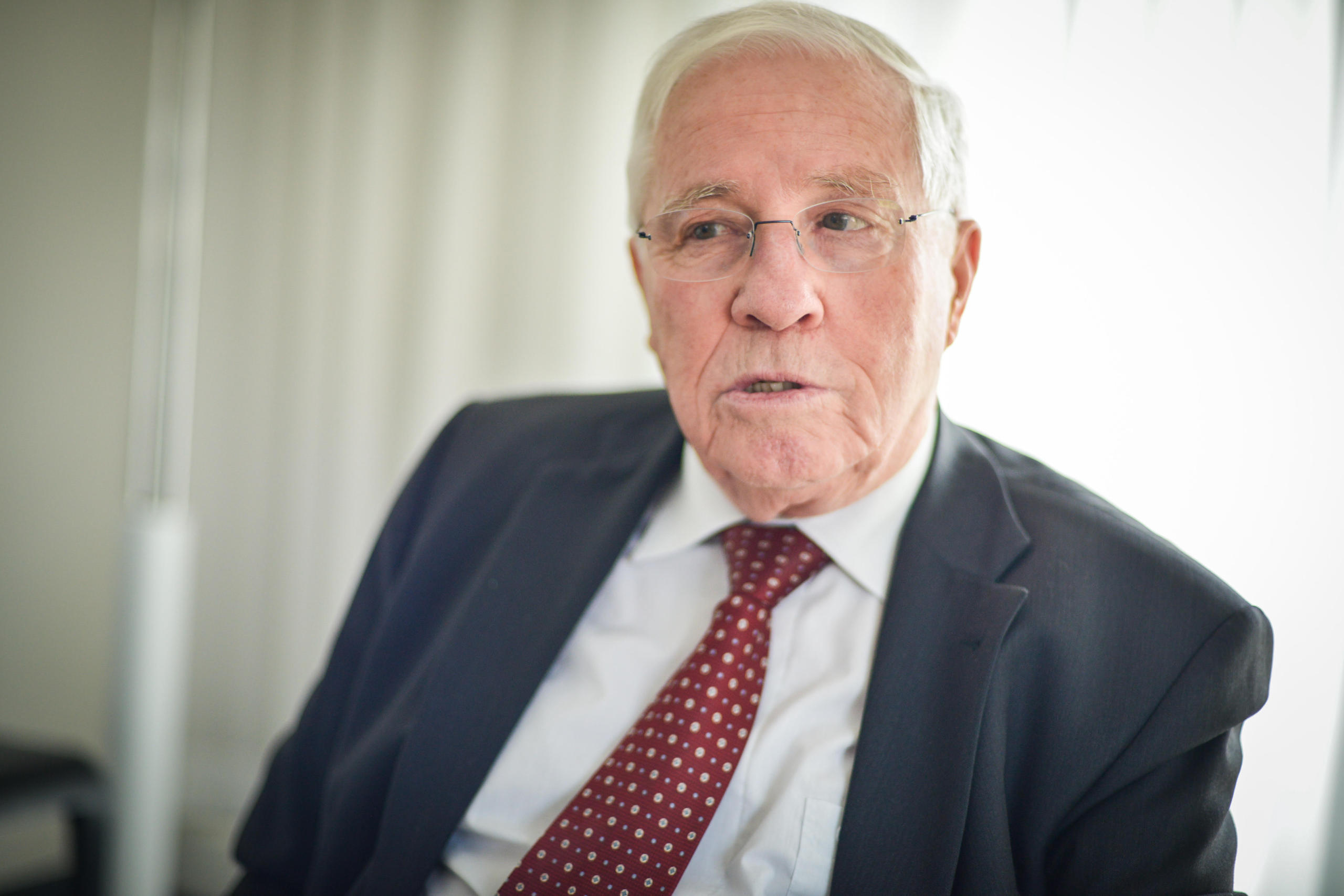
In narrowly voting against accession to the European Economic Area (EEA) a quarter of a century ago, Switzerland decided to go it alone as a small island in the European sea. For many voters, the EEA was seen as a precursor to full EU membership. Twenty-five years later, swissinfo.ch spoke with two illustrious proponents of the pro- and anti- campaigns of the time.
+ Read the interview with pro-EEA leader Peter Bodenmann
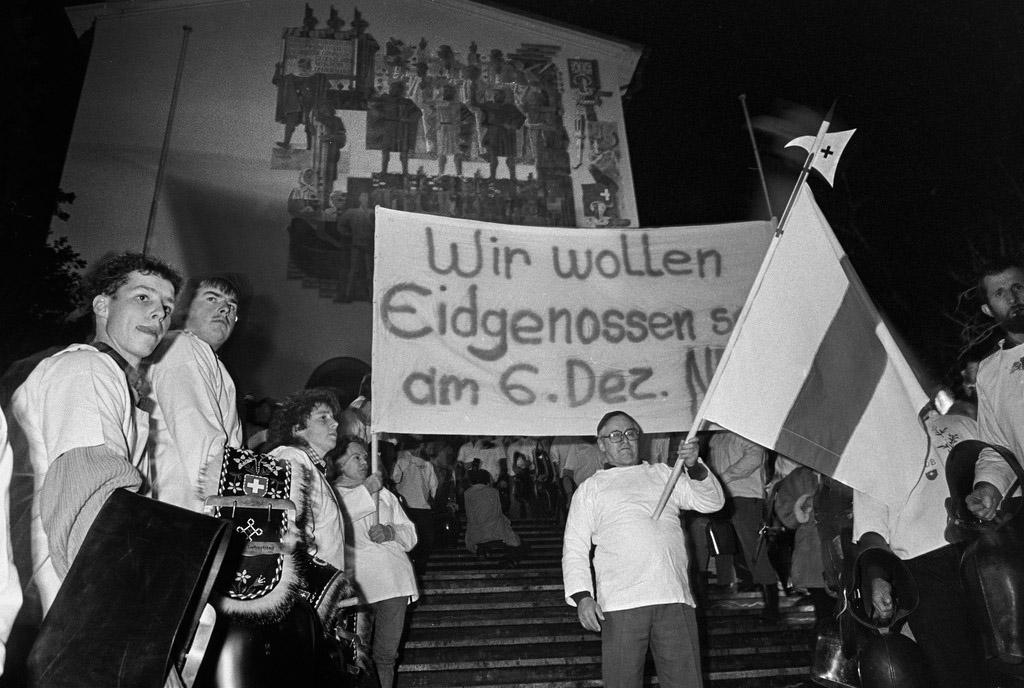
More
A quarter-century of Switzerland’s special status in Europe
swissinfo.ch: Christoph Blocher, do you remember saying this: “I must admit I am completely spent – at the point of exhaustion both physically and mentally.”
Christophe Blocher: I remember feeling that way. It was in 1992.
swissinfo.ch: It was a week before the vote on the EEA membership. You had spoken at a lot of events by then.
C.B.: At least one per day, sometimes two or three, for a whole year. A year before the vote, an opinion poll was published. It showed that 80 per cent of Swiss were in favour of joining the EEA. I knew that the media, the Federal Council, the parliament, and industry associations were for it. I said to myself: this needs to be opposed, for the consequences would be dreadful. And if we can’t get a say in the media, we have to speak directly to the people.
swissinfo.ch: It has been estimated that you spoke directly to 150,000 Swiss people.
C.B.: And I was also running a company on the side.
swissinfo.ch: How did you do it? With four hours of sleep a night?
C.B.: Sometimes less! There were nights I didn’t sleep at all. At the end I was physically and mentally broken. It was like after being in a war – you’re a wreck, you haven’t slept, you’re exhausted. I had to take time off afterwards to recover.
swissinfo.ch: On the day you won, you held an improvised press conference.
C.B.: I no longer had the strength to tell every single journalist what I thought. I can’t remember, but it’s probable I didn’t say anything very sensible!
swissinfo.ch: You didn’t talk like a winner – there was hardly a word of triumph.
C.B.: That was how I felt. Afterwards I went home, and by eight I was in bed.
swissinfo.ch: And were you able to get eight hours of sleep then?
C.B.: No, it was a disturbed sleep. Today you would describle it as burn-out. That time people just used to say “I’m at the end of my tether!” But at ten that night, there were bangs outside. My wife called me: “look at this, Christoph, they’re letting off fireworks, they’re celebrating.” I stood at the window in my pyjamas, just too exhausted after the whole battle. I wasn’t even sure I was in the right. At the outset, I was all alone, or with just a few supporters. It was doubtful if even my own party would adopt my position.
swissinfo.ch: Your appearance showed you differently, however – as a true believer.
C.B.: That is so. But at night I was plagued with doubts. As I lay in bed, I would think: can it really be that I am right and everybody else wrong? I had nightmares. But in the morning when the sun came up, I knew what I had to say and do.
swissinfo.ch: You became distinctly unpopular. Were there threats?
C.B.: Yes. I just passed them all over to the police.
swissinfo.ch: Was that the hardest part?
C.B.: The hardest thing was what Peter Bodenmann did, that called my whole livelihood into question.
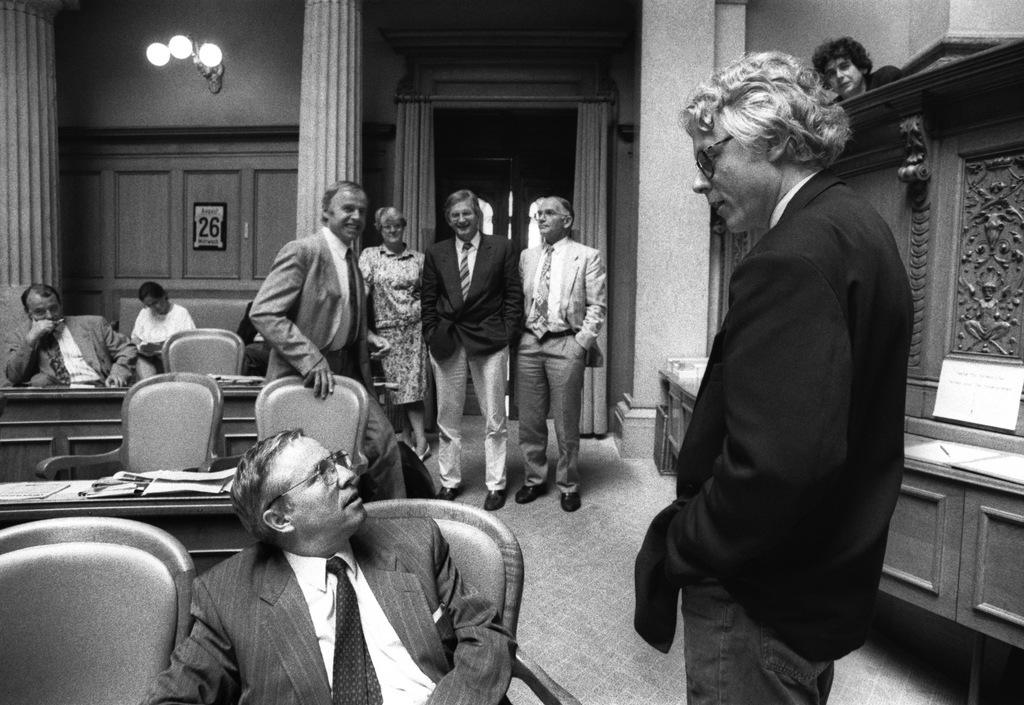
swissinfo.ch: The then president of the Social Democrats accused you of not paying your workers fairly as head of the EMS Chemie company.
C.B.: He came into the factory premises with trade union men at five in the morning, at change of shift, and told everybody that they earned much less than workers elsewhere. He wanted to provoke my staff into a strike. Bodenmann said that I could not be cut down politically, so I had to be tackled economically. Then he held a press conference in Bern, denoucing the Blocher who doesn’t pay a decent wage. It could have been disastrous.
swissinfo.ch: Then there was a recession. In crises, no-one wants to open his door. That must have helped you in the campaign against the EEA.
C.B.: It is true that in times of crisis, business prefers to rely on the tried and trusted. At the same time, the federal government was using the recession as an argument: in its view, joining the EEA would be a way out of the recession.
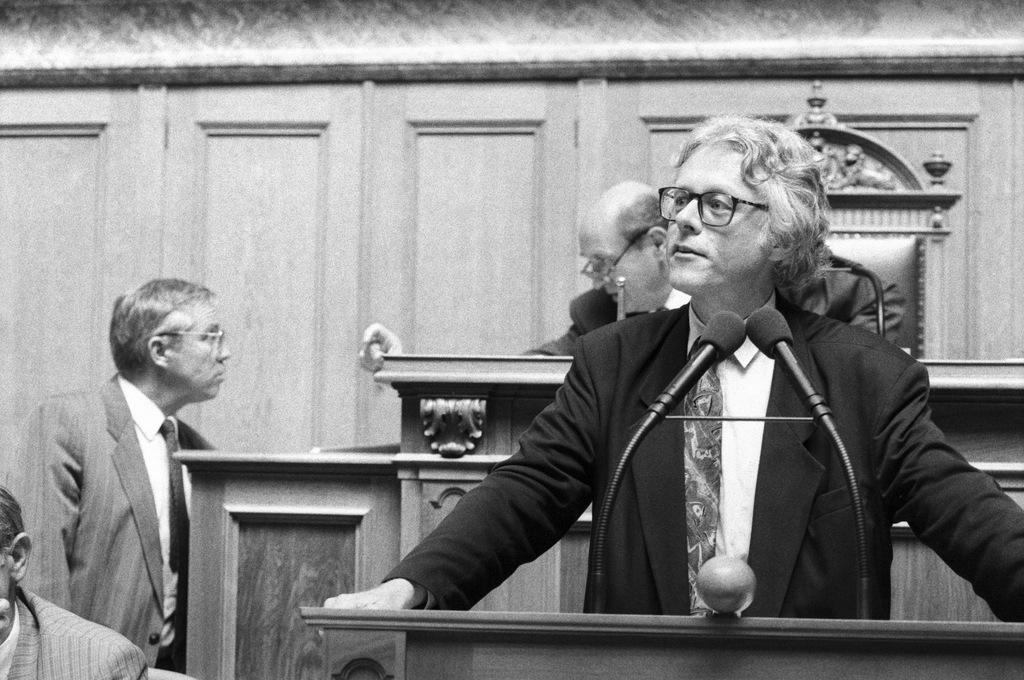
More
‘The EU has developed better than Switzerland’
swissinfo.ch: At this particular time, you had the profile of a successful businessman.
C.B.: Yes, I was a prime example of an export-oriented businessman. No-one could say that I was an isolationist. I knew the world. So people tried to turn my success against me. I was reproached for being wealthy. But it didn’t bother ordinary people that I was a wealthy businessman.
At the end I was physically and mentally broken. It was like after being in a war – you’re a wreck.
swissinfo.ch: It was the start of a period in which political debate in Switzerland became nastier and more polarised.
C.B.: That polarisation was very necessary. Switzerland was anticipating something that is now happening all across the Western world – the rejection of politicians.
swissinfo.ch: You mean the rise of movements and the disintegration of traditional political parties?
C.B.: Yes. In the US, for example, Trump is not even a Republican, he just has his own movement. The same goes for Macron in France and Beppe Grillo in Italy.
swissinfo.ch: Looking at it that way, you are also a movement.
C.B.: The fight against the EEA mobilised many people – there were new People’s Party groupings, where people gave up their old party allegiances.
swissinfo.ch: So the People’s Party is the vehicle of the Blocher movement?
C.B.: I clearly influenced the party strongly. But I have always opposed it turning into some sort of cult. We were not talking about ourselves, but about Switzerland. It was criticism directed at a political class that lacked orientation. So now we have a more stable situation – and fewer right-wing extremists.
swissinfo.ch: The People’s Party might well thank the EU. Without the EU it would hardly have reached the size it is today.
C.B.: That is true. We were really the only ones who cared about the issue of Swiss independence and self-determination.
swissinfo.ch: You have also committed yourself financially.
C.B.: I have never actually funded the party – but national vote campaigns, yes.
swissinfo.ch: Do you know how much you invested to oppose the EEA?
C.B.: No.
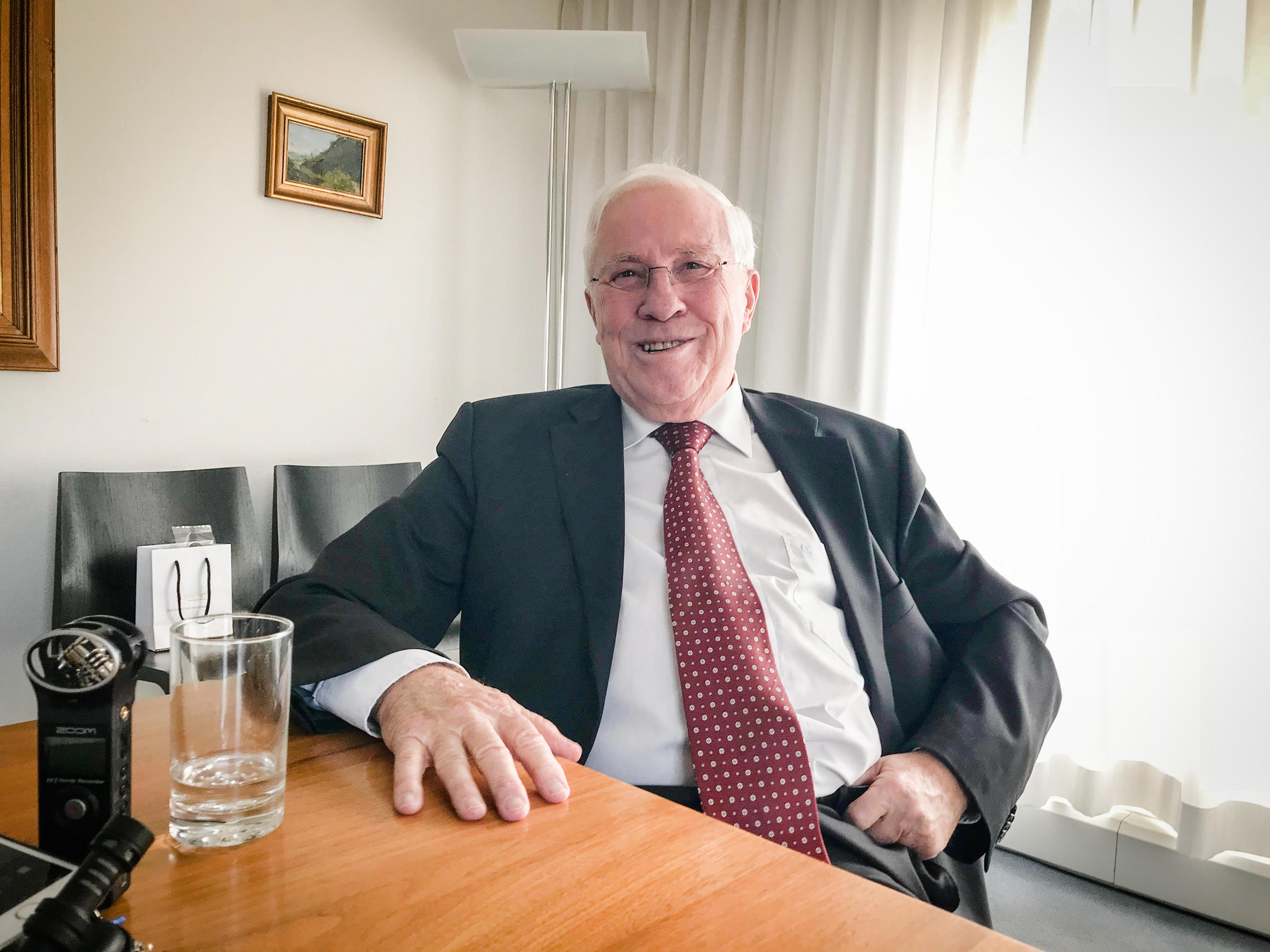
swissinfo.ch: If you did know, would you reveal it?
C.B.: It was in the millions.
swissinfo.ch: Tens of millions?
C.B.: No. I believe I must have put in one to two million.
swissinfo.ch: And not five?
C.B.: The whole campaign may have cost five. But we had plenty of donations – including many small ones. In 1992, in addition, I wasn’t so wealthy.
swissinfo.ch: Your family is now one of the ten richest in Switzerland. When someone is so wealthy, does it make them feel proud? Or grateful?
C.B.: You actually don’t notice it yourself.
No, I don’t celebrate when the EU is not doing well.
swissinfo.ch: But you can simply say: I don’t like the way this or that is going, so I’ll put a few million into the campaign against it.
C.B.: No, even I can’t spend money all that lightly. Why is my family so well-off? Because the companies are worth so much. A good industrialist needs to be rich. An industrialist who is poor – that is the saddest sight there is, for it means that his company is worth nothing and is about to fail.
swissinfo.ch: So you do feel proud.
C.B.: Not proud. But satisfied. I took over a majority of shares in EMS when it had a stock exchange value of about CHF 100 million ($101.3 million). I saved the company. Today the value is about CHF 17 billion – but it’s still the same companies.
swissinfo.ch: At the moment we know what shape the EU is in. Is this a source of satisfaction for you – that so many of Europe’s problems haven’t been solved?
C.B.: I do not wish ill to the EU. In fact I hope it does well. Earlier, I said that the EU would either develop into a centralised federation or a decentralised, loose alliance of states, which would be better, and Switzerland would already be ready. I still hope that it develops in this direction. But at present the euro is driving centralisation – that is the only way they can balance the richer and poorer member states. No, I don’t celebrate when the EU is not doing well.
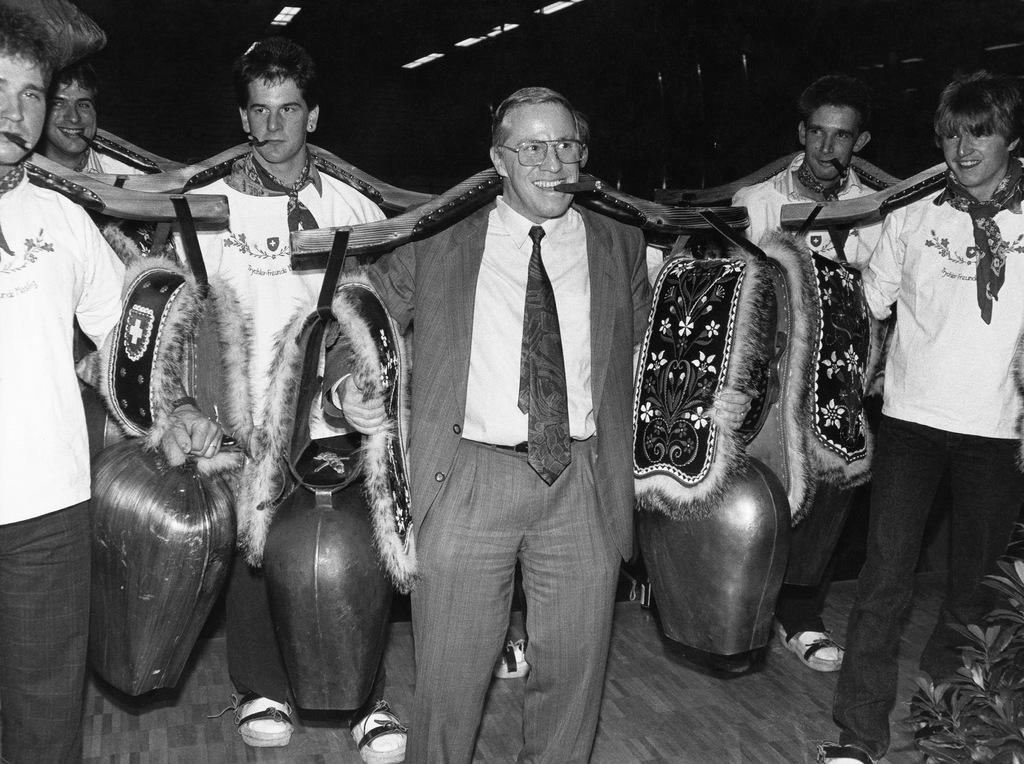
The EEA vote
The federal government, the parliament, most of the big parties – almost all were in favour of joining the European Economic Area (EEA) in 1992. As the government was not expecting a “no” vote, it had already filed an application to join the EU in May 1992. Thus it gave a clear signal that joining the EEA was simply a step towards full EU membership.
In hindsight this was a major blunder. The opposition forces gathered around Christoph Blocher were able to turn the campaign into a very emotional debate focused on Swiss culture and tradition. They claimed that many unique Swiss qualities could only be maintained if the country stayed out of the EU. Switzerland needed to hold to its independence and remain free of the Brussels bureaucracy, they said.
The national vote on March 6, 1992 was a debacle for the political establishment. Some 50,3 % of voters said no; majorities in most cantons (16 of 23) were also against joining the EEA. In June 2016 Switzerland officially withdrew its candidacy.
Translated from German by Terence MacNamee, swissinfo.ch

In compliance with the JTI standards
More: SWI swissinfo.ch certified by the Journalism Trust Initiative









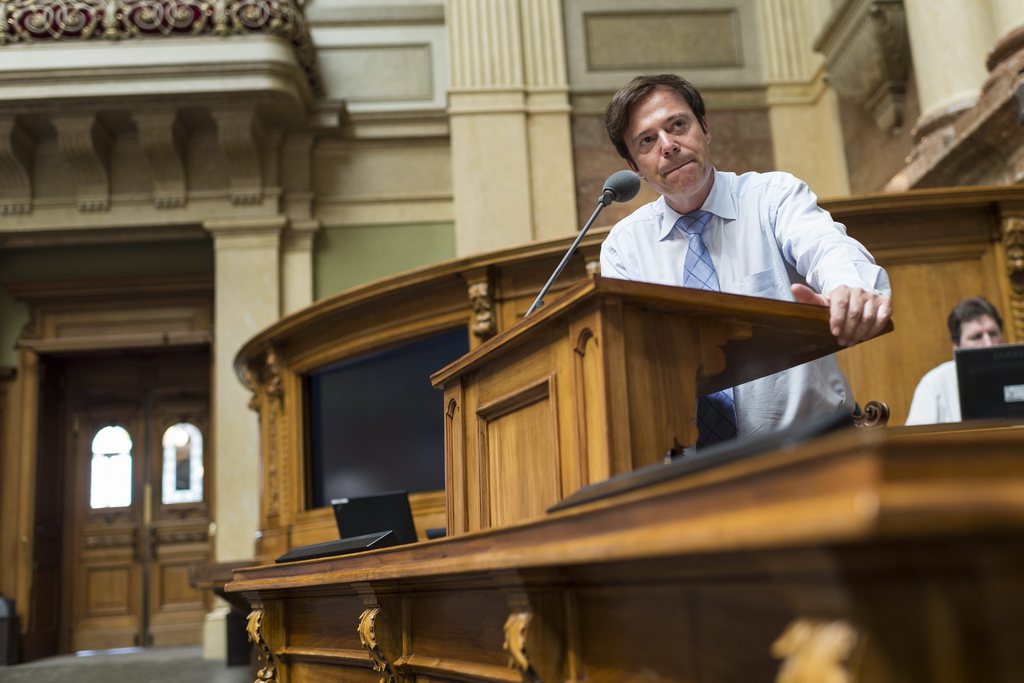

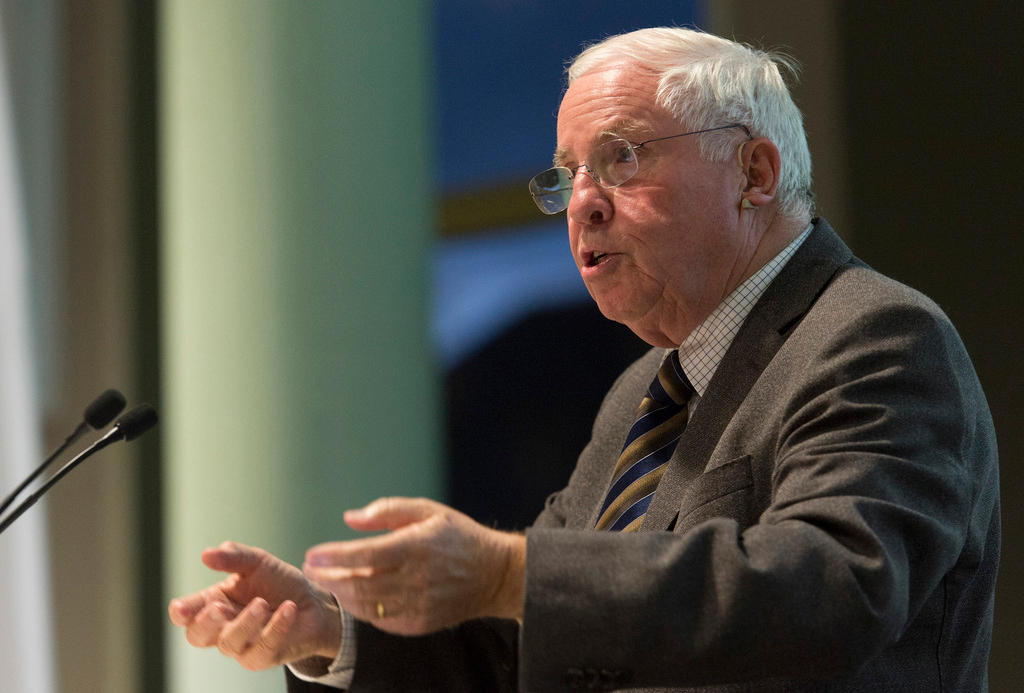
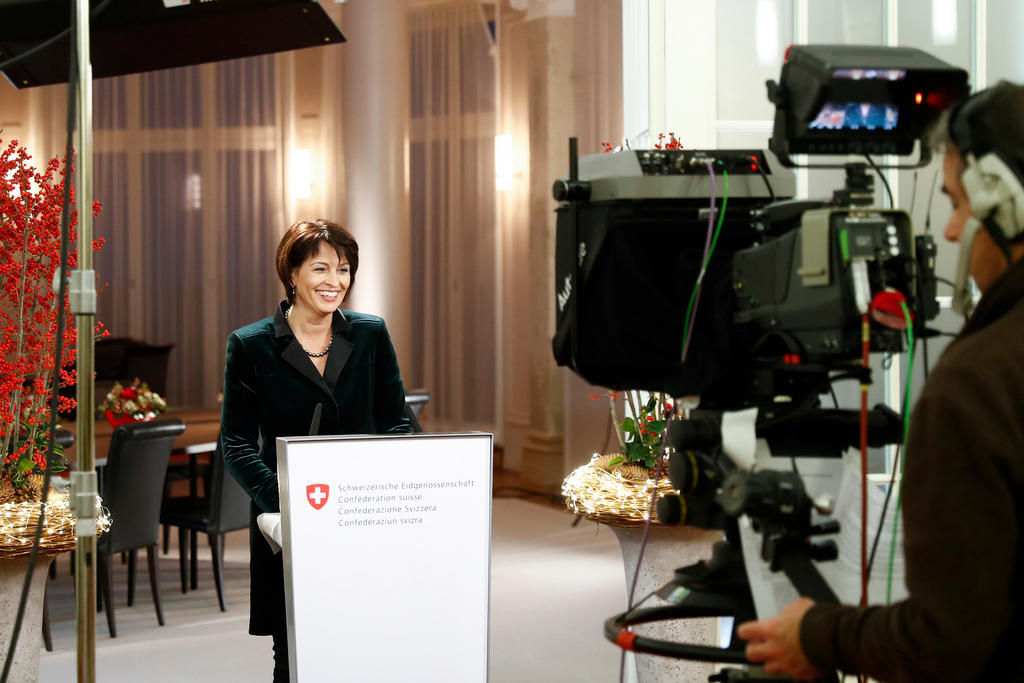
You can find an overview of ongoing debates with our journalists here . Please join us!
If you want to start a conversation about a topic raised in this article or want to report factual errors, email us at english@swissinfo.ch.